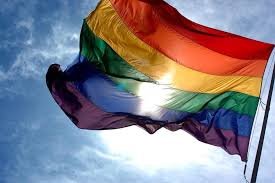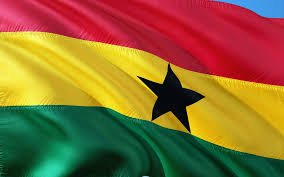In the latest blow to the LGBTQ community in Africa, Ghana’s top court has dismissed two cases challenging the constitutionality of the Human Sexual Rights and Family Values Bill.
A seven-member panel of the Supreme Court, led by Justice Lovelace Avril Johnson unanimously dismissed a petition filed by broadcast journalist and lawyer Richard Dela Sky, challenging the constitutionality of the Human Sexual Rights and Family Values Bill. The Supreme Court dismissed both petitions on the grounds that the bill had not yet become law. Justice Lovelace Johnson clarified that until a bill receives presidential assent, it does not constitute an enactment subject to judicial review of its constitutionality.

The ruling paves the way for the President-Elect to sign into law what is one of the continent’s most restrictive pieces of anti-LGBTQ legislation.
All seven judges on the Supreme Court panel ended separate petitions against it, filed by broadcast journalist and lawyer Richard Dela Sky and academic Amanda Odoi. The bill, which has been condemned by the United Nations and human rights groups, was passed earlier this year by Ghanaian lawmakers.
Richard Dela Sky had sought a declaration that the bill, which has ignited intense national debate, was null and void. However, the court rejected his petition, affirming the constitutionality of the legislative process for the proposed anti-LGBTQI legislation. The controversial bill aims to criminalize activities associated with lesbian, gay, bisexual, transgender, queer, and intersex (LGBTQI) advocacy. If passed into law, it would impose penalties on individuals promoting or funding LGBTQI-related activities, as well as those providing indirect support.

Proponents argue the bill is necessary to protect Ghanaian cultural and family values, which they claim are being undermined by foreign ideologies. Conversely, critics, including human rights groups, condemn the bill as a violation of fundamental human rights, such as freedom of expression, association, and equality under the law.
The legal challenge also included a separate petition filed by equality and inclusion advocate Amanda Odoi. Both Odoi and Sky contended that Parliament failed to meet the constitutional quorum requirements outlined in Articles 102 and 104 during the legislative process, rendering the bill’s passage unconstitutional.
Outgoing President Nana Akufo-Addo, whose term in office ends on 7 January, had delayed signing it pending the outcome of the Supreme Court challenge.
But the judges said the case could not be reviewed until it had been signed it into law. If signed into law, it will impose three years in prison for people identifying as LGBT and five years for forming or funding LGBT groups.
President, John Mahama, has expressed support for the bill.
Odoi and Sky say they are disappointed by the ruling and will examine their options after studying the full judgment.
If it becomes law, it is likely to face further court challenges.




